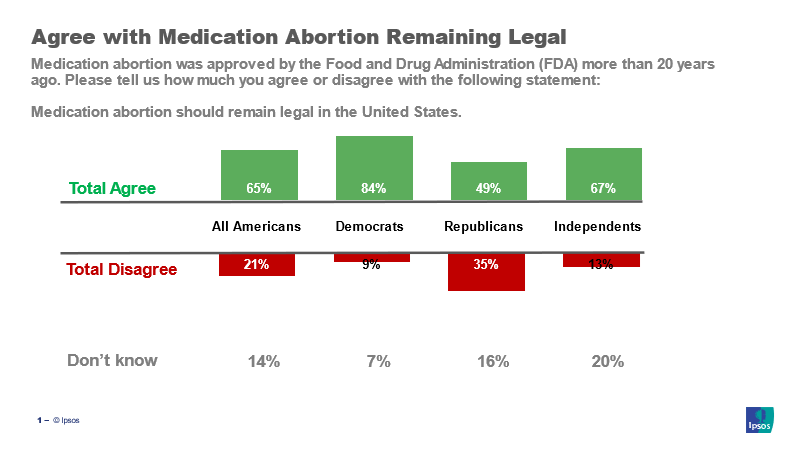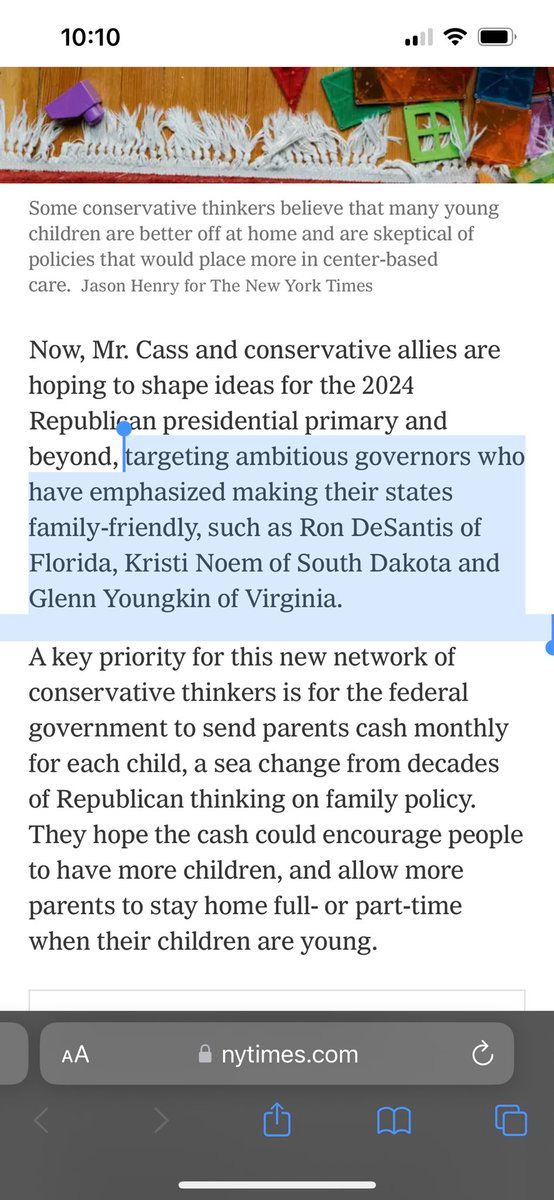A heads up: I’m taking a much-needed vacation with my family later this week and have absolutely promised them that I’ll take actual days off. Which means Abortion, Every Day won’t publish on Friday (2/17), Monday (2/20) & Tuesday (2/21). Thanks in advance for understanding!
In the states…
A Virginia bill that would have banned search warrants from collecting women’s menstrual data from apps or electronic devices failed yesterday after Gov. Glenn Youngkin’s administration opposed the legislation. Youngkin appointee Maggie Cleary spoke against the bill at a House subcommittee, claiming that the law would create a “problematic” standard. In a statement responding to the bill’s failure, the Democratic Party of Virginia said it was “exceptionally disquieting to see Governor Youngkin oppose a bill that would protect women from having their private health data weaponized against them in a court of law.” As a reminder: This is the same governor who allocated funds to the Department of Corrections for the women that would be jailed under his (now defunct) abortion ban.
Abortion is constitutionally protected in Montana, but that hasn’t stopped Republicans in the state from trying to reverse the state Supreme Court’s 1999 ruling. Gov. Greg Gianforte and Attorney General Austin Knudsen have unsuccessfully tried to push the court to reconsider their decision, and Republican lawmakers have introduced legislation, Senate Bill 154, that would codify the idea that the state constitution’s right to privacy doesn’t include abortion. But there’s one thing they haven’t tried: Asking voters.
Because Montana Republicans have a supermajority, they could put a proposed constitutional amendment on the ballot to put the question of abortion directly to voters—yet for some reason, this is the one strategy they won’t give a shot! It’s almost as if they know that the citizens of their state want abortion rights protected and they’re doing everything they can to limit reproductive rights despite voters’ wishes.
I’ve been writing a lot about the anti-choice strategy of targeting small towns in pro-choice states to ban or restrict abortion via ordinances—particularly in New Mexico. Yesterday, VICE published a big piece on what’s happening in the state, and how we’re going to see these kinds of moves from the anti-abortion movement across the country.
In Kansas, Democrats are pushing legislation to remove mandates that doctors must tell women seeking abortions medical misinformation about the risks of the procedure. State Sen. Marci Francisco said, “The provisions we are striking with this bill are attempts to undermine Kansans’ right to bodily autonomy by willfully forcing blatant misinformation into a healthcare environment.”
Meanwhile, religious leaders in Missouri filed a lawsuit against the state’s abortion ban last month, arguing that the law violated their religious freedoms. USA Today has a piece on the case—and about how more faith leaders across the country are coming forward in support of abortion rights. One of the plaintiffs, Rev. Cindy Bumb, says, “The religious Christian right has co-opted language around religion and abortion and made it all about their own beliefs.”
During a floor speech on Monday, Alabama Sen. Tommy Tuberville claimed that abortions happen “up to and past the moment of birth.” Tuberville was roundly mocked for the statement on Twitter, but it’s a mistake to treat this like a joke. As ignorant as the statement is, people really do think this—and when Republicans give the idea credibility, they are putting people’s lives in danger.

I love a little bit of good news! You probably remember Indiana Attorney General Todd Rokita and his harassment campaign against Dr. Caitlin Bernard, the abortion provider who helped a 10 year-old rape victim. Well, the AG is facing a disciplinary probe by the Indiana Supreme Court Disciplinary Commission over potential misconduct as a result of his attacks on the doctor. Good.
Quick hits:
Iowa Gov. Kim Reynolds is (once again) asking the state Supreme Court to lift the block against the state’s abortion ban;
The Florida state attorney ousted by Gov. Ron DeSantis over his refusal to prosecute abortion cases has filed an appeal after losing his case;
The Utah bill to allow pregnant women to drive in the HOV lane has failed;
Texas Republicans want state Attorney General Ken Paxton to take action against the city of Dallas, which passed a resolution supporting abortion rights;
And POLITICO interviews the South Carolina Supreme Court judge who upheld the state’s right to abortion.
In the nation…
A new study from the CDC shows that young American women are in crisis: Nearly 3 in 5 teenage girls said they felt “persistently sad or hopeless,” the highest rate in a decade. A whopping 30% said they have seriously considered dying by suicide. Kathleen Ethier, director of the CDC’s Division of Adolescent and School Health, said “Our teenage girls are suffering through an overwhelming wave of violence and trauma, and it’s affecting their mental health.” All I keep thinking about is how these numbers were gathered before Roe was overturned—and what they’re going to look like in a year or two. It’s frightening, frankly.
We know that abortion bans impact the most vulnerable among us—and Native women, in particular, are having an increasingly difficult time in a post-Roe world. “We’re already an oppressed community, and then we have this oppression on top of that oppression,” one woman told the Associated Press.
The maternal mortality rate for Native women is twice as high as white women, and pro-choice advocates are worried about the way abortion bans will make those numbers even worse. And, of course, the broader context is that Native women were victims of forced sterilization (which is why talking about reproductive justice is so important!). Definitely read the whole piece if you have time, it’s an important one.
We’ve been following moves by state Attorneys General to try to ban abortion medication in their states—twenty-three Republican AGs signed onto the federal suit against the pills shortly after sending a threatening letter to CVS and Walgreens about the medication. In the brief filed against the FDA, Republicans claim that the agency “has acted to establish a nationwide regime of on-demand abortion.” Democrats also filed a brief in the case, arguing that banning abortion medication would be catastrophic. And in the the filing from the Department of Justice, they argued (accurately!) that the case “is extraordinary and unprecedented.”
Meanwhile, a new Ipsos poll shows that Americans overwhelmingly want abortion medication to remain legal: Two-thirds want the pills to stay legal, and 62% believe banning medication abortion would harm women and their families. What’s also interesting about the new poll is that half of Republicans also believe abortion medication should stay legal.
Quick hits:
A study from the Kinsey Institute showed that nearly 8 out 10 Americans said that the decision to overturn Roe has changed their sex life, and 2 in 3 single women said they won’t date a man with an opposing viewpoint on abortion;
Refinery29 interviewed California Rep. Sara Jacobs about the My Body, My Data Act (apparently Jacobs was the first person to talk about their period on the floor of the U.S. House of Representatives!);
Cosmopolitan profiles the women who are seeking sterilization post-Roe;
Media Matters gives a rundown of the latest conservative pundit spreading misinformation about hormonal contraception;
And a column at The Washington Post calls for finally getting a male contraceptive pill to market.
Listen up…
KCRW, the public radio station in Los Angeles, has a segment on the judge who suggested that the 13th Amendment might protect abortion rights.
Keep an eye on…
The normalization of bigotry. This tweet from (superstar) Rebecca Traister so right: Why oh why are we allowing mainstream media outlets to repeat the Republican lie that states that violate human rights are somehow ‘family friendly’? Whose families, exactly, are they friendly to?
Listen to this episode with a 7-day free trial
Subscribe to Abortion, Every Day to listen to this post and get 7 days of free access to the full post archives.

















